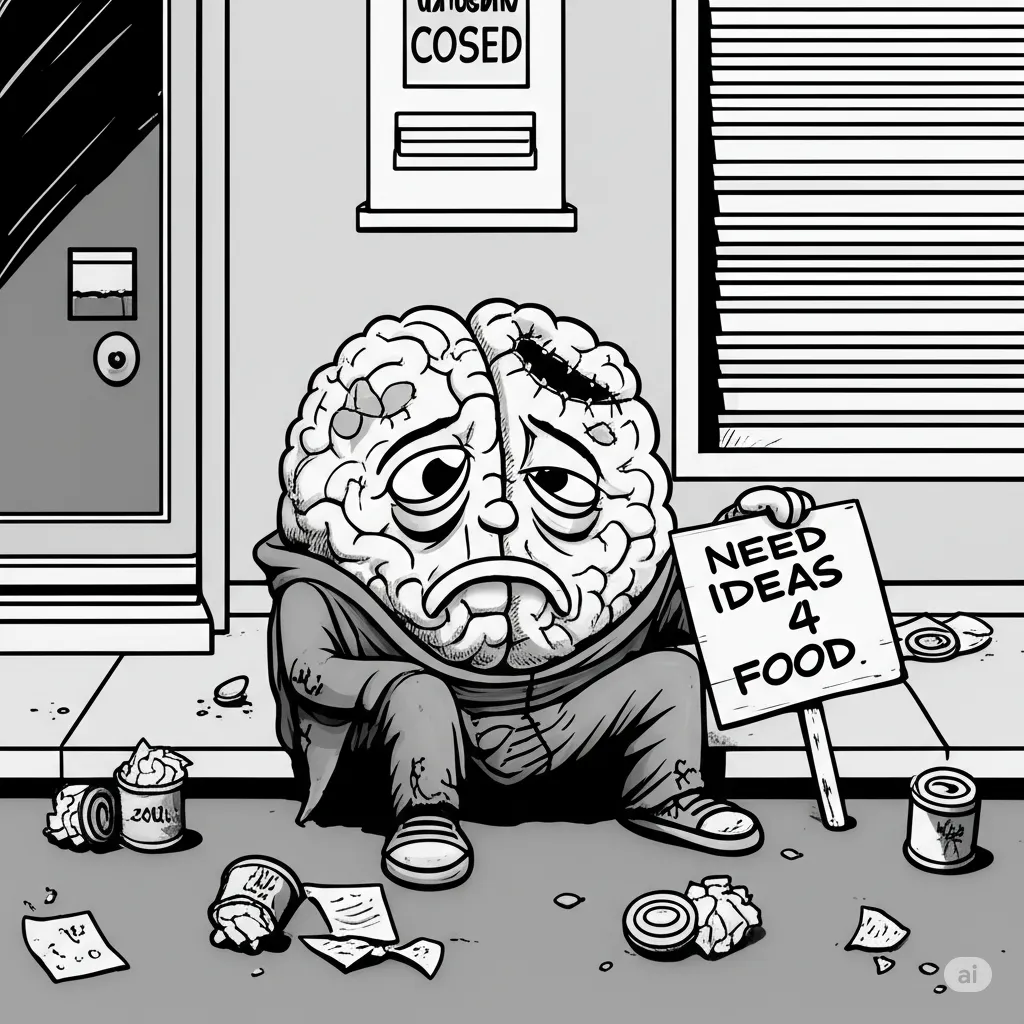
Are You Too Smart To Be Successful? (Seriously, This Could Be Your Problem)
Hey,
Let's talk about something kinda frustrating.
You're smart, right? Like, really smart.
You probably picked things up faster than other kids. School might have been pretty easy for a while. You could just get things.
This built up an identity, didn't it? You're the "smart one."
And hey, being smart is awesome! It is.
But sometimes... sometimes being "too intelligent" is the biggest roadblock between where you are now and that $10k... $15k... twenty grand a month solo business you're building.
Sounds crazy, I know. Are you insane to even think your brain is holding you back?
But maybe not.
Think about it.
You see guys out there, maybe with less "raw intelligence" than you, and they're crushing it. Making serious money. Building cool businesses.
How?
Because life doesn't actually reward intelligence.
Life rewards action.
This is something I've struggled with my entire life, having built an identity around being "the smart one."
See, when you're super intelligent, your brain is a powerful tool. It can analyze EVERYTHING.
It can see all the possible outcomes. All the potential problems.
And that's where the problem starts.
You overanalyze.
You get stuck in your head, spinning on "what if this goes wrong?" or "I don't know everything yet."
You crave that "perfect formula." Because for you, success often came effortlessly, just by being smart.
Having to try... having to take imperfect action... having to learn by doing and potentially failing...
That feels wrong. It feels... not smart. Maybe even stupid.
And that clashes with that identity you've had for so long. The "gifted kid complex," as some call it. It's like this sticky resistance to changing how you operate.
You've used your intellect to power through things before, skipping steps like developing study habits or even deeply understanding your own emotions because you could think your way through them.
But business, and life, isn't just about logic.
It's driven by emotions. And taking action.
Your intellect, when unchecked by emotional awareness or a willingness to just do, can become a tool for rationalizing why you shouldn't take action.
Why that piece of advice won't work for you because you're a "special case."
Why starting small is pointless because you can already see the tiny, incremental result and it doesn't look impressive enough to your big, smart brain.
This is help-seeking yet help-rejecting behavior, a common pattern when your strong intellect is hijacked by fear or ego. You look for solutions, but your brain is already finding ways to dismantle them.
But guess what?
Those people who are making millions? Many of them aren't geniuses who mapped everything out perfectly.
They're the ones who started.
They took action, even when they felt stupid.
They kept going, even when they failed.
They measured their actions and results, not just how hard they felt like they were working.
Remember, you can't do everything at once. But small steps, consistently, build into massive things. Think of how jiu-jitsu spread from Japan – one practitioner at a time.
Even imperfect action provides valuable lessons. You learn by doing, not just by thinking about doing.
So, what do we do about this?
We need to make a shift.
We need to stop identifying solely with our intelligence.
We need to get comfortable looking stupid.
We need to feel the fear of imperfection and do it anyway.
Your super powerful brain isn't the enemy. It's an incredible asset.
But you gotta learn to direct it. To use it to fuel action, not paralyze it.
To use it to understand your emotions and ego, which are often the real drivers holding you back.
This is about leveraging your intelligence to get results, not just to win theoretical debates in your head.
It means accepting that real-world experience, even messy experience, is more valuable than just theoretical understanding. Your brain's amazing at theory, but theory without data from action leads to flawed models.
It's a hard thing to confront, this idea that what you thought was your biggest strength might be your biggest barrier. It means questioning a deep part of your identity.
It will be painful. It will be extremely uncomfortable. It will feel like dying, because a part of you will be...
But the reward on the other side? Financial freedom. A thriving business. A life where you are in control.
And that sounds good to me!
Stay focused,
Brandon Rhee
